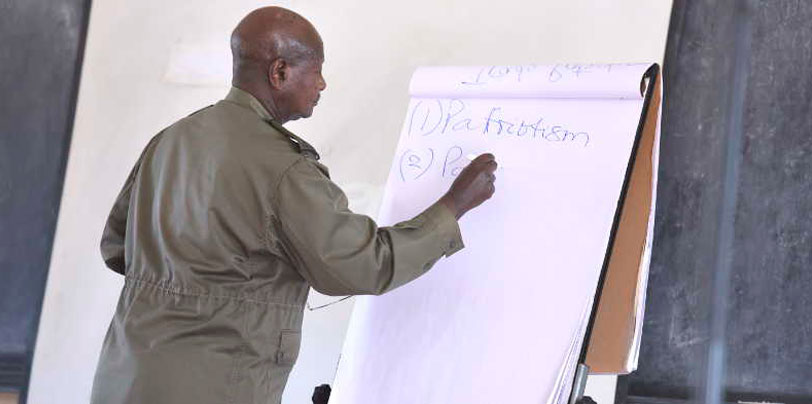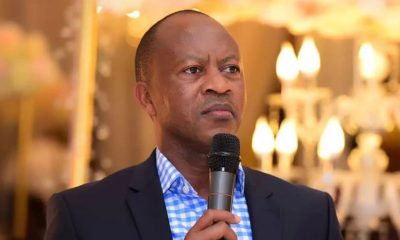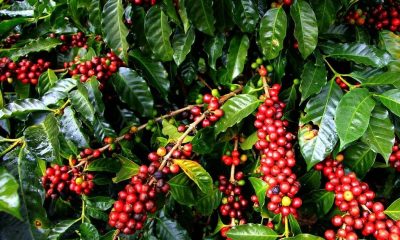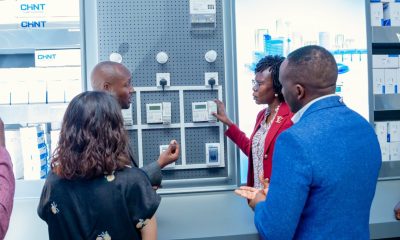Columnists
Did we over rely on good luck?
The rains stopped coming on time; China stopped growing; South Sudan went to war; DRC learned how to manage its affairs better; donors became broke and closed the taps; commodity prices fell; and our relatives ‘sweeping’ abroad had very little to send home!
Uganda’s economy is in crisis. That much we all agree; it has even started to become boring. During the period 2011 – 2016, GDP growth rate has been negative in four quarters. Another negative quarter is underway.
Prior to this bad period, the economy expanded at an average rate of 7.8% per year. Many observers attributed this terrific performance to ‘good economic reforms’ introduced by the NRM government.
Although this government rolled out – beginning in 1990 – a number of pro-growth policies (liberalisation and privatisation, export diversification, and tax and political reforms), a great deal of the good performance of Uganda’s economy could strongly be attributed to factors beyond the artistry of its policymakers.
Those who have been observant enough know that for far too long Uganda has been a bizarre economy – growth in the midst of chaos and poverty. Eight years ago, I attempted to explain what I termed ‘Uganda’s economic puzzle’ – growth in the midst of total structural breakdown.
When the NRM took power, they did a few things that propelled growth. Some are the pro-growth policies outlined above. They also failed to do a lot of other things. First, they neglected the infrastructure. Despite Uganda being a landlocked country, government never thought of, or at least moved to build a reliable railway line connecting Kampala to Mombasa.
We didn’t build infrastructure
Ugandan traders and exporters continued to use road transport to cover the 870 miles, making Kampala-Mombasa the second most expensive route in the world ($120 per ton) – only after Douala-Ndjaména route, connecting Cameroon and Chad.
Second, we did not build dams to generate electricity. We looked on as real tariffs of power (adjusted for inflation) increased from UGX 37 per kWh in 1990 to UGX 224 in 2010 to UGX 667 in 2015. By the end of 2016, only 18% of Ugandans had access to electricity.
Third, we left roads to breakdown beyond repair and by the time we woke up, we were required to rebuild nearly all of them and tarmac new ones. The cost went though the roof.
Fourth, we built layers of red tape impediments, turning Uganda into one of the most uncompetitive places for investors, with the highest number of procedures (13) and number of days (26) to start a business in East Africa.
Fifth, we failed to invest in human resource development, causing a huge shortage of technically trained manpower that investors may productively employ. We ended up with a large army of unemployable young people whom we misrepresented as unemployed.
Sixth, we neglected agriculture, in a predominantly agrarian economy, government spent an average of 3.7% of the budget on agriculture and its related services, well below the 10% required by African economies.
Seventh, we left everything to the market without any effective regulation. From mobilisation of domestic savings to interest rates offered and charged by banks to input markets, regulatory weaknesses were everywhere.
Conventional macroeconomic theory teaches us that in an economy characterised by the abovementioned structural rigidities, there will be a slide down of the normal growth rate, a stagnated economy, a decline in GDP, increased unemployment, lack of bank credit and thus investments would crowd out.
Yet amidst all the rigidities mentioned, Uganda continued to achieve growth rates that forced some people to think that the figures reported about Uganda’s economic performance could have been ‘cooked’.
How could a country where only 5% of the population had access to electricity, and even those lucky few were accustomed to power blackouts of up to 20 hours a day and yet they pay some of the highest power prices, see its economy grow at 7.8%?
We even liberalised environment
Well, two factors explain this paradox: God and good luck. God kept the gifts of nature working the miracles for the lazy and sometimes careless Ugandans.
Government did not liberalise the economy only; it also liberalised the environment. Under the NRM, Ugandans were given a lot of freedoms, including that of deciding whether to cut down forests or to spare them!
Researchers have found that more than half of Uganda’s forest cover has been cut down, and wetland destroyed under government’s watch. The annual deforestation rate in Uganda lied between 1% and 3%, one of the highest in the world.
Despite all this damage, rainfall in Uganda continued to average 1,180mm, and well-distributed in a bimodal pattern. The country continued to enjoy two planting seasons (March-June and September-November). Therefore, Ugandans were assured of food and easy money. Agro-processing factories never ran out of raw material supplies.
Good luck, on the other hand, brought China on the global scene. On December 11, 2001 China joined the World Trade Organisation (WTO), at the right time to save countries like Uganda from sliding into economic recession.
China and South Sudan
As we all know, Ugandans are good consumers but not producers. China became the factory of the world, and to Uganda it became more than a factory. It became a knight in shining armor, supplying Ugandans with products of all kinds.
All of a sudden every Ugandan could afford a radio set and mobile phone, every urban dweller could afford a television set, a DVD/VCD player, and a computer all made in China. Trade in these products became the most thriving business downtown Kampala and across the country.
The ramifications of these transactions increased government revenue in form of taxes as well as incomes for Ugandans. The economy stayed afloat. New property developments emerged, sprawling over Kampala’s ever increasing number of hills, shopping malls, grinding traffic, and emerging middle class.
To help Ugandans diversify risk, luck also brought South Sudan, emerging as a market first in 2008. We exported all sorts of things to South Sudan – from eggs to fish to maize to bricks and sand for construction. In 2008/2009, informal trade with South Sudan brought in USD 800 million. An egg was bought at USD 1 (at the exchange rate of UGX 1,800 per dollar then).
Apart from trade, (illicit) money flew in from South Sudan and the Democratic Republic of the Congo (DRC). Ugandans sold/mortgaged/rented their properties to South Sudanese at obscene prices, and earned the country good foreign exchange. The economy, as a result, grew at Chinese rates.
Luxury of ‘mere talk’
In 2008/09, Dr. Ezra Suruma, while serving as Finance Minister had a difficult time explaining to legislators how Uganda could achieve growth as high as 9.8% registered that year. Ugandans could, understandably, not believe that their country, with all its structural rigidities, could rake in such growth figures. Even Suruma struggled to make sense of the figures. South Sudan and DRC money was pouring into the country like manna.
Apart from these monies, donors were still both liquid and at good terms with Uganda. The aid/GDP ratio, which was about 5% in 1986 rose significantly to about 19% in 1992 and 22% in 1998. In absolute terms donor money, increased from USD 870m in 1996/97 to USD 1,400m in 2008/09. This money kept the economy afloat, at least by keeping the wallets of our thieves full to look into the tax revenue purse.
Apart from this, Uganda enjoyed substantial debt relief and relatively low borrowing costs, and high commodity prices. In 1998/99, Uganda became a beneficiary of the highly indebted poor countries (HIPC) debt relief. Luck might not bring another of this window, though we could be in need of one right now!
Luck also kept the global economy booming for Ugandan ‘sweepers’ abroad (in Europe, America, South Africa, and Asia) to earn some good amounts of remittances. Throughout the 2000s, Ugandans living and working abroad brought home dollars rising, on average, from USD 256m in 2000 to USD 1,446m in 2010.
Mr. President, with all the above under careful consideration, I have a feeling that you made our country rely a lot on luck. And like it was always bound to happen, time came and the luck abandoned us.
The rains stopped coming on time; China stopped growing; South Sudan went to war; DRC learned how to manage its affairs better; donors became broke and closed the taps; commodity prices fell; and our relatives ‘sweeping’ abroad had very little to send home.
All these factors have conspired to turn the fortunes of Uganda’s economy upside down. Mr. President, you cannot build an economy that entirely depends on the God’s mercy or fortunes of others.
But since God is always merciful and gracious, even to the careless and lazy, business cycles have started turning in our favour again. Rains have come back. Soon we shall have produce to sell, and Kenya might demand more of our food. New markets in Middle East and Asia are also coming up. Have we learned our lessons?
Mr. President, like God tells us in Proverbs 14:23, “In all toil there is profit, but mere talk tends only to poverty.” Let us not make the same old mistakes. We must never allow ourselves, again, the luxury of ‘mere talk’.
Let us follow up every single word we say, every single speech we make, every single policy we author, and every single retreat we spend at Kyankwanzi with action. You may have said it loud enough, but we have not felt the ‘Kisanja Hakuna Mchezo’ in our daily lives, this past year.
Comments






















